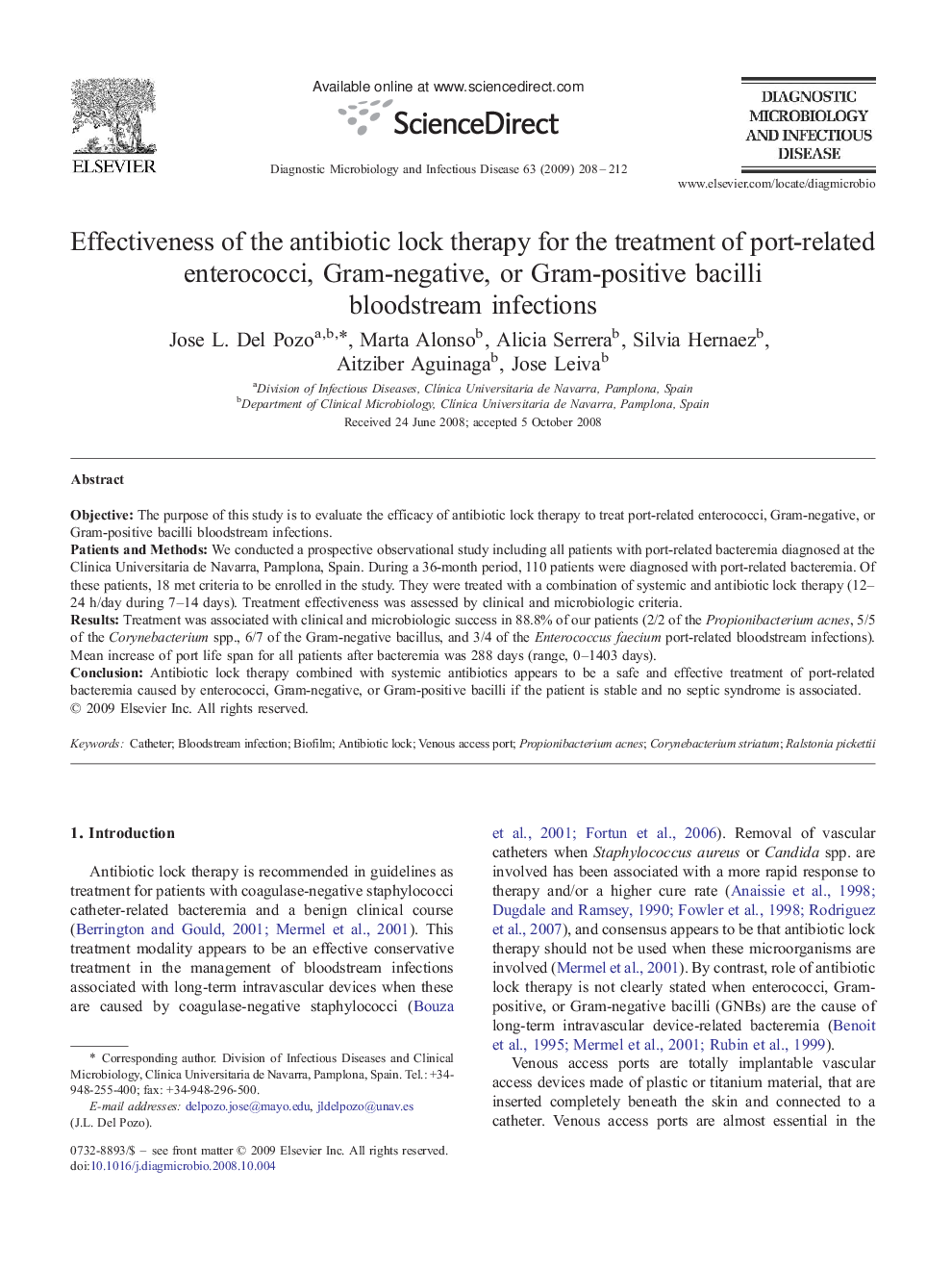| Article ID | Journal | Published Year | Pages | File Type |
|---|---|---|---|---|
| 3348044 | Diagnostic Microbiology and Infectious Disease | 2009 | 5 Pages |
ObjectiveThe purpose of this study is to evaluate the efficacy of antibiotic lock therapy to treat port-related enterococci, Gram-negative, or Gram-positive bacilli bloodstream infections.Patients and MethodsWe conducted a prospective observational study including all patients with port-related bacteremia diagnosed at the Clinica Universitaria de Navarra, Pamplona, Spain. During a 36-month period, 110 patients were diagnosed with port-related bacteremia. Of these patients, 18 met criteria to be enrolled in the study. They were treated with a combination of systemic and antibiotic lock therapy (12–24 h/day during 7–14 days). Treatment effectiveness was assessed by clinical and microbiologic criteria.ResultsTreatment was associated with clinical and microbiologic success in 88.8% of our patients (2/2 of the Propionibacterium acnes, 5/5 of the Corynebacterium spp., 6/7 of the Gram-negative bacillus, and 3/4 of the Enterococcus faecium port-related bloodstream infections). Mean increase of port life span for all patients after bacteremia was 288 days (range, 0–1403 days).ConclusionAntibiotic lock therapy combined with systemic antibiotics appears to be a safe and effective treatment of port-related bacteremia caused by enterococci, Gram-negative, or Gram-positive bacilli if the patient is stable and no septic syndrome is associated.
